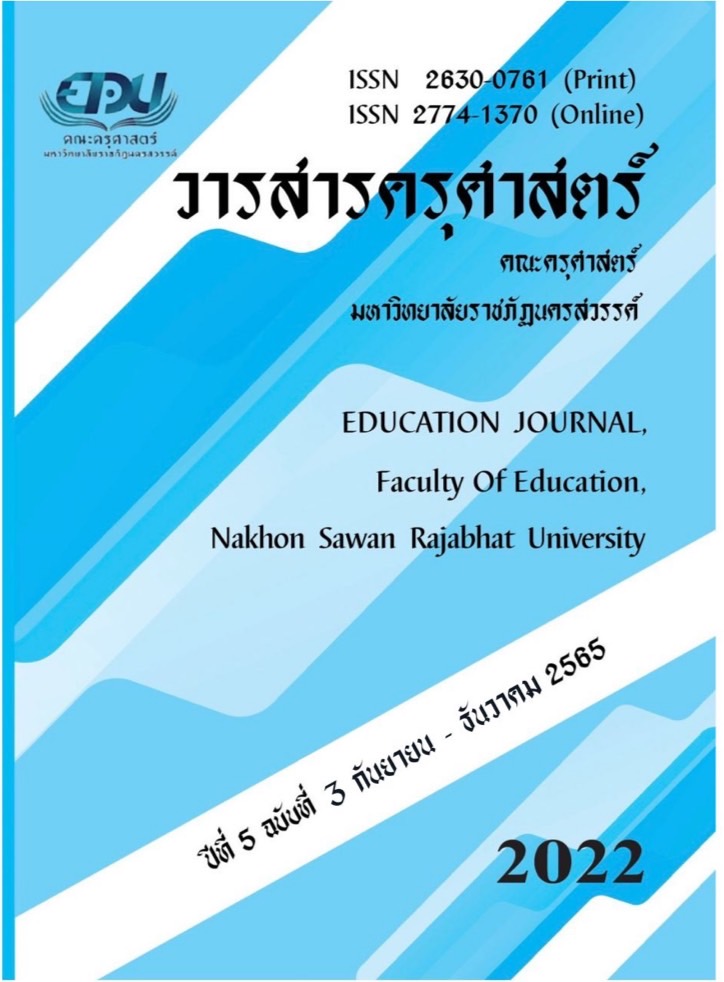A Strategic Management Development to the Goals to Enhance Organization for Educational Innovation in Small Size School under the Lampang Primary Educational Service Area Office 2
Main Article Content
Abstract
The objectives of this research were to 1) analyze strengths, opportunities, aspirations, and results,
2) create and inspect, 3) implement, and 4) evaluate the strategic management development to the goals to enhance organization for educational innovation in small size schools. A sample of 302 people were selected in analyzing strengths, opportunities, aspirations, and results, 8 experts in creating and inspecting strategies, and 30 informants in implementing and evaluating the strategies. The tools were questionnaires, group discussion topics, draft strategies, reflection form and evaluation form. The data were analyzed by using mean, standard deviation and content analysis. The results were as follows;
- The analysis revealed that (1) strengths consisted of teachers’ participation, teamwork culture, and the use of ICT in administration and learning management, (2) opportunities consisted of networks’ participation, (3) inspiration consisted of teachers’ intension in creating learning innovation, and (4) good results that will occur consisted of teachers’ competency in learning management in the digital age, students’ attributes and achievements, and participation in education administration.
- The creating and inspecting revealed that the main strategies consisted of (1)enhancing administration efficiency with digital technology, (2) developing teacher innovators’ capability in their learning management in the digital age, (3) developing learners’ quality with happy learning management environment, and (4) creating partner networks in education administration participation. The strategic suitability inspection revealed that the overall were at a high level. 3) The implementation showed that regulations to promote administration and learning management should be set up in the appropriate strategy through innovation, suitable technology, and the use of social cost and community resources in educational administration. 4) The strategic evaluation showed that the benefits were at the highest level in overall and the feasibility was at a high level.
Downloads
Article Details

This work is licensed under a Creative Commons Attribution-NonCommercial-NoDerivatives 4.0 International License.
References
ขวัญชนนก แสงท่านั่ง. (2563). รูปแบบการพัฒนาสถานศึกษาสู่องค์กรแห่งนวัตกรรมสำหรับสถานศึกษาขั้นพื้นฐาน. วารสารสังคมศาสตร์และมานุษยวิทยาเชิงพุทธ, 5(7): 153 - 168.
จิณณวัตร ปะโคทัง. (2559). ยุทธศาสตร์การบริหารงานแบบทะยานสู่เป้าหมาย (SOAR Analysis). วารสารบริหารการศึกษาบัวบัณฑิต มหาวิทยาลัยราชภัฏอุบลราชธานี, 16(3): 1 - 6.
จีระนันท์ มูลมาตร, ธาริณี ใจสะอาด, นงเยาว์ เรืองบุญส่ง, ภานุวัฒน์ สุวรรณมาโจ, รวิวรรณ สิทธิสุวรรณ, ธีรังกูร วรบำรุงกุล, เริงวิชญ์ นิลโคตร, วัยวุฒิ บุญลอย, และ อรุณเกียรติ จันทร์ส่งแสง. (2564). การใช้เทคโนโลยีสารสนเทศเพื่อการบริหารของสถานศึกษาในยุคดิจิทัล ทรานฟอร์เมชั่น. วารสารคุณภาพชีวิตกับกฎหมาย, 17(2): 21 - 32.
ณัฐพล พันธุ์ภิญญา, เพียงแข ภูผายาง, สุรินทร์ ภูสิงห์, และ บรรจบ บุญจันทร์. (2564). กลยุทธ์การบริหารโรงเรียนขนาดเล็ก. วารสารศึกษาศาสตร์ มหาวิทยาลัยมหาสารคาม, 15(2): 220 - 231.
ประสิทธิ์ หนูกุ้ง, และ เรชา ชูสุวรรณ. (2565). การวางยุทธศาสตร์การจัดการศึกษา Next normal: ความปกติถัดไปของการจัดการศึกษาเพื่อพัฒนาคุณภาพผู้เรียน. วารสารสหวิทยาการมนุษยศาสตร์และสังคมศาสตร์, 5(3): 776 - 789.
ภารดี อนันต์นาวี. (2564). องค์กรนวัตกรรมทางการศึกษา: การบริหารจัดการ. วารสารวิชาการ มหาวิทยาลัยนอร์ทกรุงเทพ, 10(2).
ภิญโญ รัตนาพันธ์. (2556). SOAR Analysis: เครื่องมือที่นำมาใช้แทน SWOT Analysis. วารสารวิทยาลัย บัณฑิตศึกษาการจัดการ มข, 6(2): 7 - 20.
วนิดา แสนอินต๊ะ, และ เอกราช โฆษิตพิมานเวช. (2565). การพัฒนากลยุทธ์เพื่อการบริหารโรงเรียนเอกชนในสังคมไทยปัจจุบันโดยใช้ SOAR Analysis. วารสารบัณฑิตศึกษามหาจุฬาขอนแก่น, 9(2): 51 - 63.
วิวัฒน์ มีสุวรรณ์. (2560). ปัจจัยที่ส่งผลต่อคุณลักษณะของครูนวัตกรด้านเทคโนโลยีการศึกษา ในสถานศึกษาสำหรับปฏิบัติการสอน เครือข่ายมหาวิทยาลัยนเรศวร. วารสารศึกษาศาสตร์ มหาวิทยาลัยนเรศวร, 19(3): 50 - 62.
ศศิรดา แพงไทย, และ สมใจ มณีวงษ์. (2561). ยุทธศาสตร์การบริหารสถานศึกษาขนาดเล็กที่มีประสิทธิผล สำนักงานเขตพื้นที่การศึกษาประถมศึกษาตาก เขต 1. JOURNAL OF NAKHONRATCHASIMA COLLEGE, 12(2): 114 - 125.
สุนิสา คงสุวรรณ, พรเทพ รู้แผน, และ อรรณพ จีนะวัฒน์. (2561). การพัฒนาแบบจำลองการบริหารการเปลี่ยนแปลงในโรงเรียนประถมศึกษาขนาดเล็กสังกัดสำนักงานคณะกรรมการการศึกษาขั้นพื้นฐาน. วารสารวิจัยรำไพพรรณี, 12(3): 39 - 48.
อิสรา จิตตะโล, วราพร เอราวรรณ์, และ สมเกียรติ ทานอก. (2559). ปัจจัยที่ส่งผลต่อการเรียนรู้อย่างมีความสุขของนักเรียนชั้นประถมศึกษาปีที่ 6 สังกัดสำนักงานเขตพื้นที่การศึกษาประถมศึกษาบุรีรัมย์. วารสารการวัดผลการศึกษา มหาวิทยาลัยมหาสารคาม, 22(1): 386 - 396.
อัครนัย ขวัญอยู่. (2558). แนวทางการแก้ปัญหาโรงเรียนขนาดเล็ก. รายงานทีดีอาร์ไอ. ฉบับที่ 113, มีนาคม 2558.
Mithun Sridharan. (2022). SOAR Analysis – A tool for strategic planning. Retrieved 18 November 2022, from https://thinkinsights.net/strategy/soar-analysis/.
Tiina Korhonen, Jari Lavonen, Minna Kukkonen, Kati Sormunen, & Kalle Juuti. (2018). 9. The Innovative School as an Environment for the Design of Educational Innovations. Retrieved 10 November 2022, from https://www.researchgate.net/publication/301523446_The_Innovative_School_as_an_ Environment_for_the_Design_of_Educational_Innovations.


